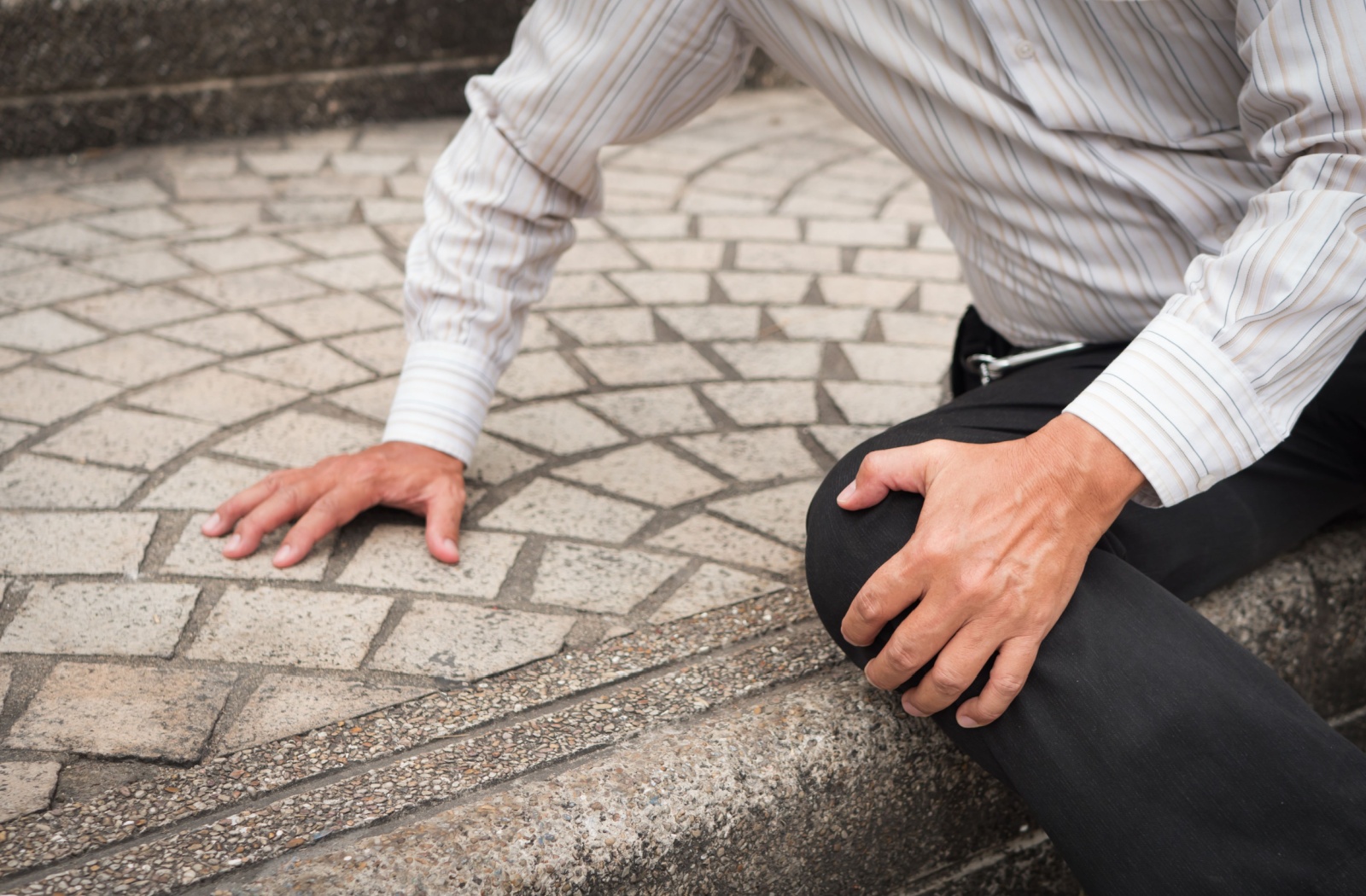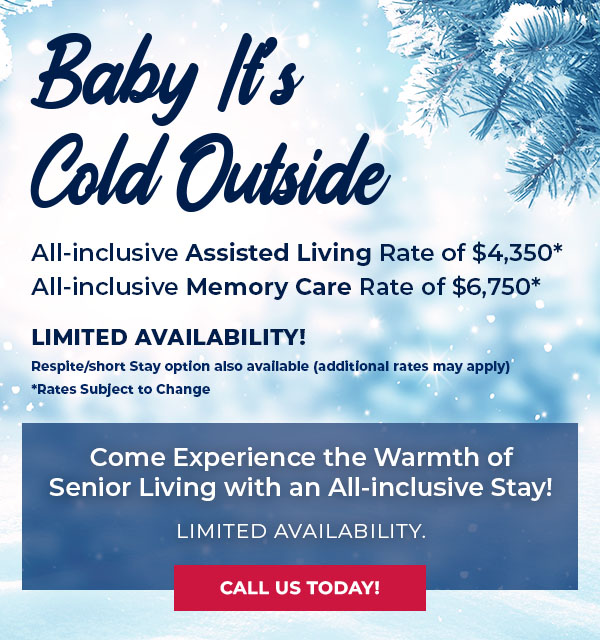A fall can be a frightening experience for both you and your older parent. Knowing how to respond to falls is essential for your parent’s safety and well-being, whether it’s a minor stumble or a serious injury.
If your senior parent falls, stay calm, assess their condition, and seek appropriate help. Acting quickly and thoughtfully can prevent further harm and support their recovery.
If your parent is increasingly prone to dangerous falls, it may be time to consider the transition to assisted living.
Stay Calm & Assess the Situation
Staying calm is one of the most important things you can do when faced with an emergency. Maintaining your composure helps you think clearly, provide comfort, and respond appropriately. Falls can be stressful, but maintaining a level head will help you prioritize your parent’s safety.
Begin by assessing your parent’s condition.
Look for visible injuries such as bruises, cuts, or swelling. If you notice any bleeding, apply gentle pressure with a clean cloth. Ask your parent how they feel and where they’re experiencing pain or discomfort.
Their ability to communicate these details is key in determining the severity of the situation. Avoid moving your parent if they appear seriously injured, as this could cause additional harm.
Instead, focus on making them comfortable where they are while you evaluate your next steps. If your parent can communicate clearly and has no obvious signs of serious injury, proceed cautiously and help them regain their footing.
Call for Help (If Necessary)
In some cases, your parent’s fall may require immediate medical attention. If your parent experiences:
- Unconsciousness or confusion.
- Severe pain or inability to move.
- Signs of head trauma, such as dizziness or vomiting.
- Heavy bleeding that won’t stop.
- Difficulty breathing or chest pain.
Call 911 right away. Emergency professionals are trained to handle such situations and can provide appropriate care.
Contacting your parent’s healthcare provider is also a good idea, even for less urgent concerns. A medical evaluation can rule out internal injuries or underlying conditions that might have contributed to the fall. When seeking help, be prepared to provide details about what happened and any visible injuries.
Help Them Get Up Safely (If Possible)
If your parent seems uninjured and feels capable, assist them in getting up carefully. Always approach this step with caution to avoid straining or worsening a hidden injury.
Start by guiding them to a seated position. Give them time to steady themselves. From there, use sturdy furniture, like a chair, to provide support as they rise slowly. Offer physical assistance only if necessary, and avoid pulling on their arms or shoulders, as this could cause strain or injury.
If they struggle to stand or feel lightheaded, don’t force them to continue. Instead, help them remain comfortable and call for assistance. Ensuring your parent’s safety takes precedence over trying to move them too quickly.

Seek Medical Attention
Even if the fall seems minor, a follow-up with a healthcare professional is essential. Seniors are at higher risk for hidden injuries, such as fractures or internal bleeding, that may not show symptoms right away.
A doctor can also assess whether the fall resulted from a medical issue, like a change in medication or balance problems. Addressing these factors promptly can reduce the risk of future falls.
Support Their Emotional Well-being
A fall can take a toll on your parent’s confidence and emotional health. Reassure them that falls are common and not a reflection of failure or weakness. A kind and supportive attitude can help your parent feel more at ease as they recover.
Talk openly about their concerns or fears. They might worry about falling again or feel embarrassed about needing help. Validating their feelings and encouraging a positive outlook can significantly affect their recovery process.
Prevent Future Falls
Preventing future falls starts with a thorough evaluation of your parent’s living environment.
Look for hazards like loose rugs, poor lighting, or cluttered pathways. Simple changes like securing rugs, adding nightlights, and clearing walkways can significantly reduce risks. Encourage your parents to use mobility aids, such as canes or walkers, if recommended by their doctor These devices provide additional support and stability.
Discuss their medication regimen with their healthcare provider. Some medications can cause dizziness or balance issues, increasing the risk of falling. Incorporate exercises that improve strength and balance into your parent’s routine. Activities like yoga or tai chi can boost coordination and reduce the likelihood of falls. To provide extra support, install grab bars in bathrooms and handrails along staircases.
Stay involved in your parent’s care. Regularly check their environment and physical health to ensure they remain safe and comfortable.
Work with Professionals
Professional support can enhance your parent’s safety and well-being. A physical therapist can recommend exercises tailored to improve balance and strength.
An occupational therapist can assess their home and suggest modifications to reduce the risk of falls.
Your parent’s doctor can provide insight into any medical factors contributing to falls, such as vision changes or chronic conditions. A collaborative approach to care promotes a safer and healthier lifestyle.
Understand When Additional Care May Be Needed
Frequent falls or declining mobility may signal the need for extra support. Assisted living might be the right solution if your parent struggles with daily activities or experiences ongoing fear of falling.
Assisted living communities provide a safe environment with staff trained to address seniors’ needs. These services allow your parent to maintain their independence while receiving the help they require. Discuss this option openly with your parent. Focus on the benefits, such as increased safety and access to social activities. Emphasizing your parent’s comfort and well-being can ease the transition.
Explore potential communities together, ensuring the choice aligns with their preferences and needs.
Find Support with All American Assisted Living at Warwick
At All American Assisted Living at Warwick, we provide a supportive, safe environment designed to meet the unique needs of seniors. Our compassionate team is here to ensure your loved one’s well-being while promoting independence and dignity. Contact us today to learn more about our services and how we can support your family.







13 thoughts on “What to Do When Your Elderly Parent Has a Fall”
Comments are closed.